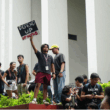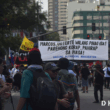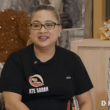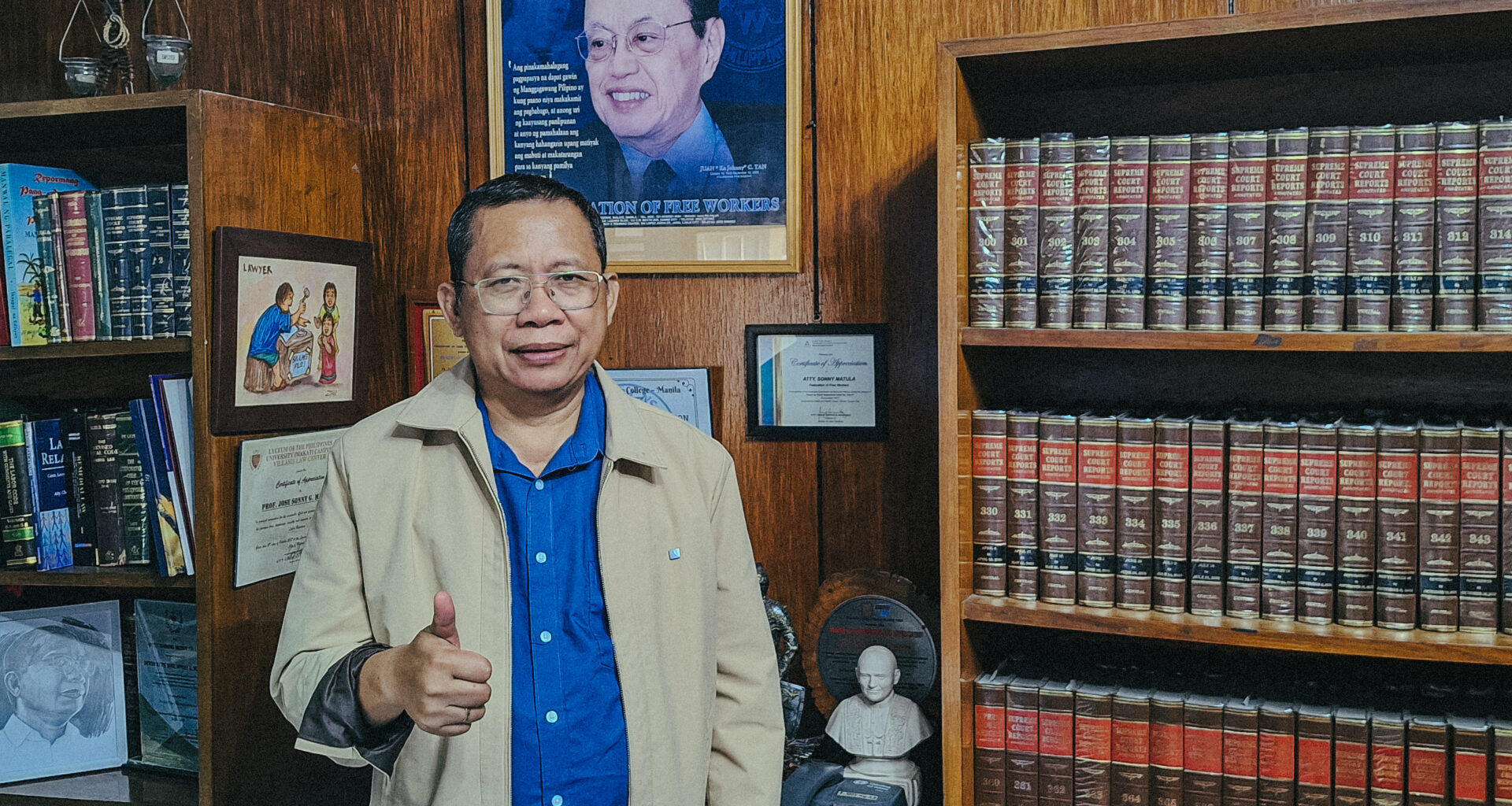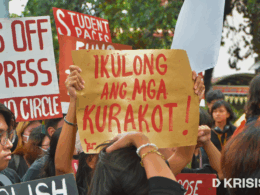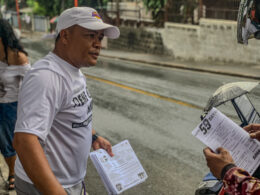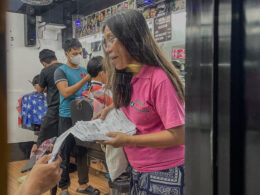This story is part of our #CounterCheck election campaign coverage series. Produced independently in compliance with COMELEC regulations, this does not serve as an endorsement or campaign material.
It was a rainy afternoon in Taft Avenue—the kind that slows down even the rush of election season. Inside the Federation of Free Workers (FFW) building, the fluorescent light flickered as Sonny Matula quietly sifted through a thick stack of papers. His phone was within reach but untouched.
After weeks on the campaign trail, he was catching up—finalizing pleadings, sorting schedules, reviewing flyers—before flying back to Mindanao the next morning.
“May mga deadline kasi sa korte,” he said, glancing at his notes. “Kaya kailangan kong tapusin ngayon habang may konting pahinga.” His version of rest was resolute, methodical, and always, somehow, still connected to the campaign.
This is Matula’s third run for Senate. The labor leader-turned-lawyer has no illusions about the odds nor the costs of running. Still, he tries again.
“Hindi ako tumatakbo para lang manalo,” he said. “Tumatakbo ako para ilantad ang isyu ng manggagawa. At habang tumatakbo, nag-oorganisa rin kami.”
He’s not exaggerating. While most candidates rely on public relations firms or political machinery, Matula’s campaign leans on something else entirely: union muscle. His network extends from factory floors in Laguna to bus terminals in Mindanao, with flyers passed hand-to-hand by workers, not staffers.
“Union talaga ang backbone namin. Kung saan may kasapi, doon kami,” he said.
His own campaign trail isn’t paved with press conferences or celebrity endorsements. It weaves through modest barangay halls, fish ports, and crowded marketplaces—places where wage hikes, job security, and food on the table are matters of survival, not slogans.
Often, Matula is his own driver. One time, he had to shuttle a photographer to Pampanga after a hearing in Calamba because no one else could take the wheel.
Another time, he and his team took a quick bath in a terminal in Naga for 30 pesos before a courtesy call—the power was still out, so they had to fetch water from a pump.
“Sabi ni Leni (Robredo), ‘Bakit fresh na fresh kayo?’ Naligo lang kami sa terminal,” he chuckled.
Born in a river town in Agusan del Sur, Matula was raised amid displacements from Maguindanao to Sultan Kudarat. His early years were shaped by both poverty and movement. He commuted by boat for hours to attend high school.
In college, he sold newspapers and sticks of candy to survive. “Newsboy ako noon. Sa gabi, nagtitinda ng magasin. Summer, nagta-tap ng rubber.”
Eventually, he earned a scholarship at Mindanao State University, where he joined student protests and first encountered labor organizing through the Federation of Free Farmers and the FFW.
He studied law to strengthen the cause. “Sabi ko noon, ‘Lord, gawin mo akong abogado. Ipaglilingkod ko ito sa manggagawa.’” After passing the bar, he turned down more lucrative paths to return to FFW, eventually rising as its national president.
Since then, he’s built a reputation as a steady force in labor negotiations, a lawyer who knows the inside of picket lines as well as courtrooms. In recent years, he’s also taught law and mentored students—always tying legal education back to workers’ rights.
This year, Matula is pushing for a legislated ₱200 wage hike, the abolition of labor-only contracting, and stricter penalties against exploitative employers. Under current laws, he pointed out, companies can violate labor codes and pay only ₱1,000 to ₱10,000 in fines.
“Parang biro. Kaya dapat ₱30,000 to ₱50,000 kada manggagawang biktima,” he said. “Kung hindi mo seryosohin ang parusa, paulit-ulit lang ang pag-abuso.”
But he doesn’t just talk about policy. He recounts conversations from the campaign trail, like a fisherman in Taytay who couldn’t cross a municipal bridge during high tide because the design ignored their needs. “Sabi ko, tutulungan namin kahit wala nang eleksyon. Platform din ito para palakasin ang unyon.”
Matula’s is a candidacy shaped not by flash but by function. During a Zoom call with overseas Filipinos earlier that week, many told him they had already voted. Some had questions about his legislative track, others about labor protections abroad.
He listened, answered, and took notes. Later that day, he returned to writing his Supreme Court memorandum on the ₱90-billion PhilHealth fund transfer, which he called unconstitutional. “Health fund ‘yan. Hindi ‘yan pondo ng tulay o kung ano pang proyekto,” he said.
The next morning, he was set to fly to Davao, then Agusan. No off days, even on Sundays.
“Araw-araw may pakikipag-usap, may dapat ayusin,” he said. But when asked if he gets tired, he paused. “Napapagod siyempre. Pero ‘pag nakatulog, okay na. Tuloy ulit bukas.”
Matula speaks in plain language, without embellishment. Yet the weight of his words lands. For him, every campaign is a longform conversation about justice: quiet, relentless, and deeply personal.
“Kung hindi man ako manalo, hindi ibig sabihin na talo. Basta may na-organisa. Basta may lumaban.”
Outside, the rain had eased. The city shimmered faintly under wet asphalt. Matula stood to check his papers one last time.
“Mahalaga ito,” he said. “Kasi ang susunod na laban, nandoon na sa Mindanao.”



